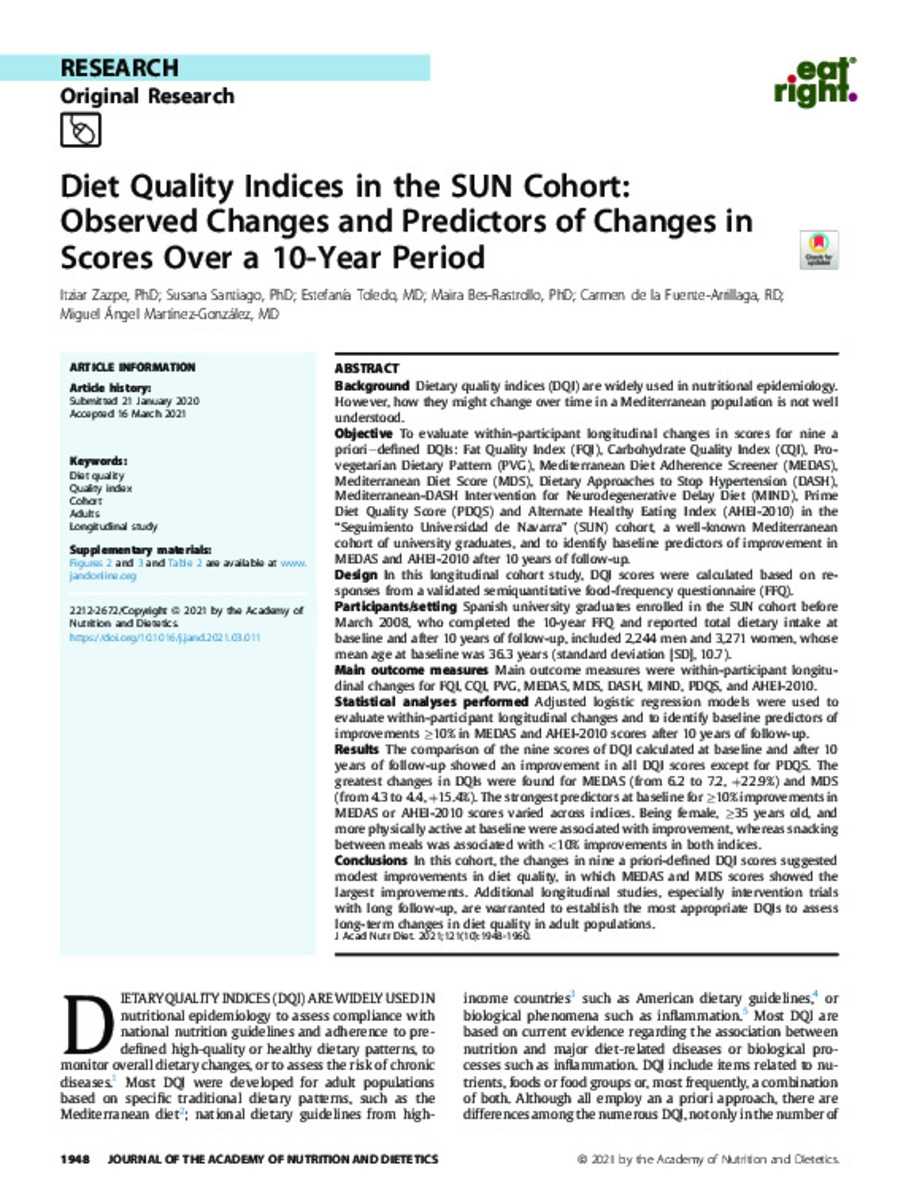Diet quality indices in the SUN cohort: observed changes and predictors of changes in scores over a 10-year period
Keywords:
Diet quality
Quality index
Cohort
Adults
Longitudinal study
Citation:
Zazpe, I. (Itziar); Santiago, S. (Susana); Toledo, E. (Estefanía); et al. "Diet quality indices in the SUN cohort: observed changes and predictors of changes in scores over a 10-year period". Journal of the Academy of Nutrition and Dietetics. 121 (10), 2021, 1948 - 1960.e7
Statistics and impact
0 citas en

Items in Dadun are protected by copyright, with all rights reserved, unless otherwise indicated.








